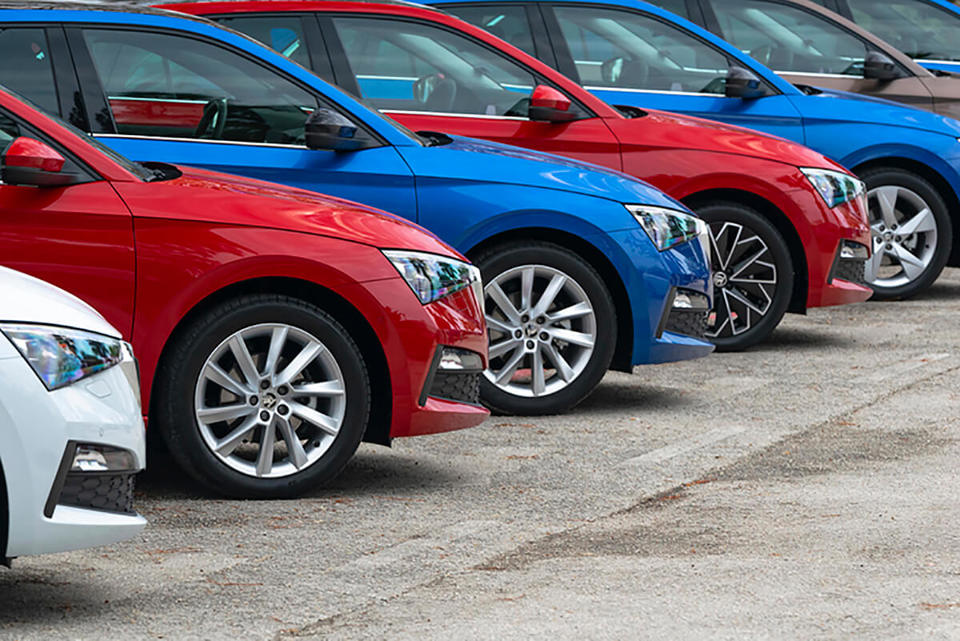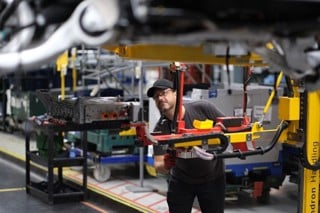Concern is mounting that unsold new cars are being forced on to the market by manufacturers, which could result in used car values tumbling.
Five years ago, the sight of thousands of unsold new cars laying nose-to-tail in anonymous airfields was commonplace.
Manufacturers were guilty of over production and, in an effort to both clear stock and retain market share, new cars were forced on to the market via incentives and pre-registrations.
This enticed consumers away from used cars as they saw greater value in new vehicles.
The drop in demand pushed prices down and experts are now warning that, while a shortage of stock will keep prices stable over the next few months, this situation could be repeated.
Pre-registered cars are delivery-mileage cars that are discounted to the consumer, because they have already had one registered owner – usually the dealer.
Dealers often pre-register dozens of cars at a time to meet sales quotas. These are then sold for potentially thousands of pounds off the list price.
Pre-registered stock held for three months is not included in official pre-registration figures.
In 2008, manufacturers began to rein back on this type of business.
“That’s still absolutely the case,” said Manheim Remarketing’s managing director Mike Pilkington.
“But it’s been a matter of some debate that, with the tough market in Europe and change in the exchange rates, the SMMT figures belie a flat retail market and growth is actually around new cars being forced into the dealer network.”
New car registrations in the retail sector are up nearly 9% year-on-year, according to the SMMT.
Adrian Rushmore, managing editor of Glass’s guide, also believes there is a real danger that the market faces oversupply.
“It could be driven by forced registrations due to the exchange rates being in favour of sterling and we could see that in the final quarter of this year,” he said. “We would then start to see values of used cars tumble.”
Rushmore expects to see a sharp increase in pre-registration stock towards the end of the year while Craig Mailey, marketing director at Manheim, said: “It changes buying behaviour, it changes prices and it just creates uncertainty.”
A squeeze on residual values would put contract hire rates under pressure if leasing companies have not taken a sufficiently cautious approach to their residual predictions when setting rates now.
Outright purchase fleets, meanwhile, could see thousands of pounds wiped of their assets.
Pilkington said: “Over recent months, retailers have been complaining of more pressure to take vehicles for other than genuine customer needs.”
Sales are down across Europe and with a stronger pound the UK could become the dumping ground for new product. “Even the German market, which was considered to be pretty solid, is wobbling a bit,” said Rushmore. “The pressure on mainland Europe is growing.”
CAP communications manager Mike Hind similarly recognises a range of factors which could potentially lead to a greater drive for new car volume into the UK market.
He said: “We are now in the sterling/euro exchange rate zone which makes landed costs in the UK more attractive just at a time when demand is falling away dramatically in Europe. Factories which are geared up for particular production volume need somewhere to send that product and the plethora of new car offers already available suggest the UK is seen as ripe for an increase in new car sales.
“This year’s balance of supply and demand has led to more stable used car values than for several years. Any significant increase in supply would have to be matched with an increase in demand to avoid downward pressure on values.”
Read how the latest new car registration figures have lead to more pre-reg concerns.

























FC - 17/03/2013 11:18
But what is the actual value of a new car that had been idle in a dealer stock for say two years after manufactured date? Aren't cars subjected to depreciation as well? Why then the dealers try to maintain listed price; we consumer should be smart and pay the depreciated value of the item; that being some figure BELOW listed asking price.